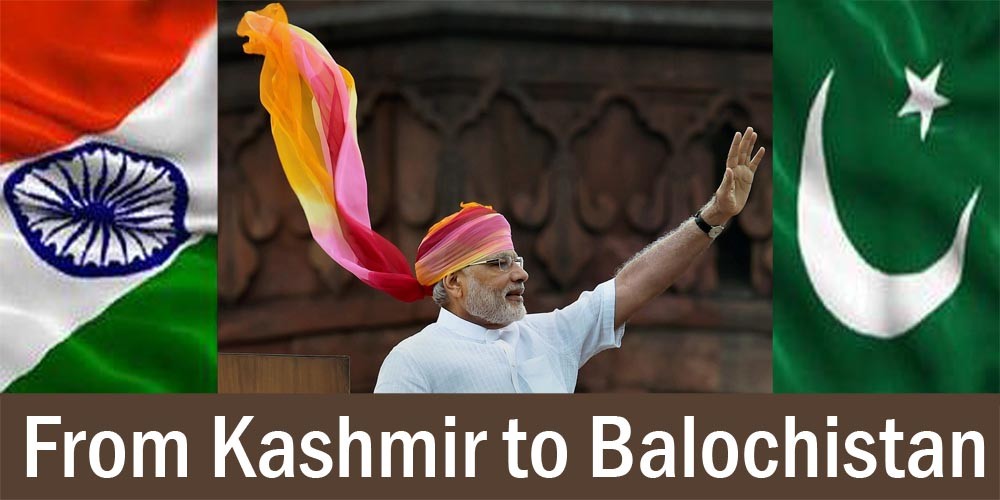
Urging Pakistan and India to talk and sort out their Kashmirs and Balochistans as per their people’s wishes

The more things change, the more they remain the same. The dictum has held true for Pakistan-India relations in the last almost seventy years. Sometimes, things change for the worse, leading one to conclude the two countries are perhaps cursed, and peace is still a far cry.
If it were only a Cold War, it would not have mattered that much. If only. But this war of accusations and counter-accusations, couched in terms like ‘cross-border infiltration’ and ‘interference’, is actually about acts of terrorism in each other’s country, leading to a loss of precious, innocent, human lives.
The latest provocation came in the form of Indian Prime Minister Modi’s independence day speech, where he brought up Balochistan and Gilgit Baltistan (GB, referred to as Pakistan Occupied Kashmir). Modi, obviously agitated at the developments in Srinagar, became angrier when Pakistan sought to diplomatically ‘internationalise’ the issue.
A week before his speech, Pakistan had indirectly blamed Indian and Afghan intelligence agencies for the attack on lawyers in Quetta that left 77 people dead.
Read also: From Kashmir to Balochistan
Though Modi did receive immediate and huge flak from the opposition within his own country for this speech, Pakistan took no time in giving him a befitting response. This translated into anti-Modi (and pro-Pakistan) rallies in both Balochistan and GB.
With Indian prime minister having uttered the ‘B’ word and Pakistan having responded in whatever way it thought best, the challenge for Pakistan remains that Balochistan never gets equated with Kashmir in international diplomatic circles ever, the way Modi wants it.
For that to happen, for peace to materialise, the two countries must talk, must agree to talk, must let Saarc happen and must sort out their Kashmirs and Balochistans as per their people’s wishes.